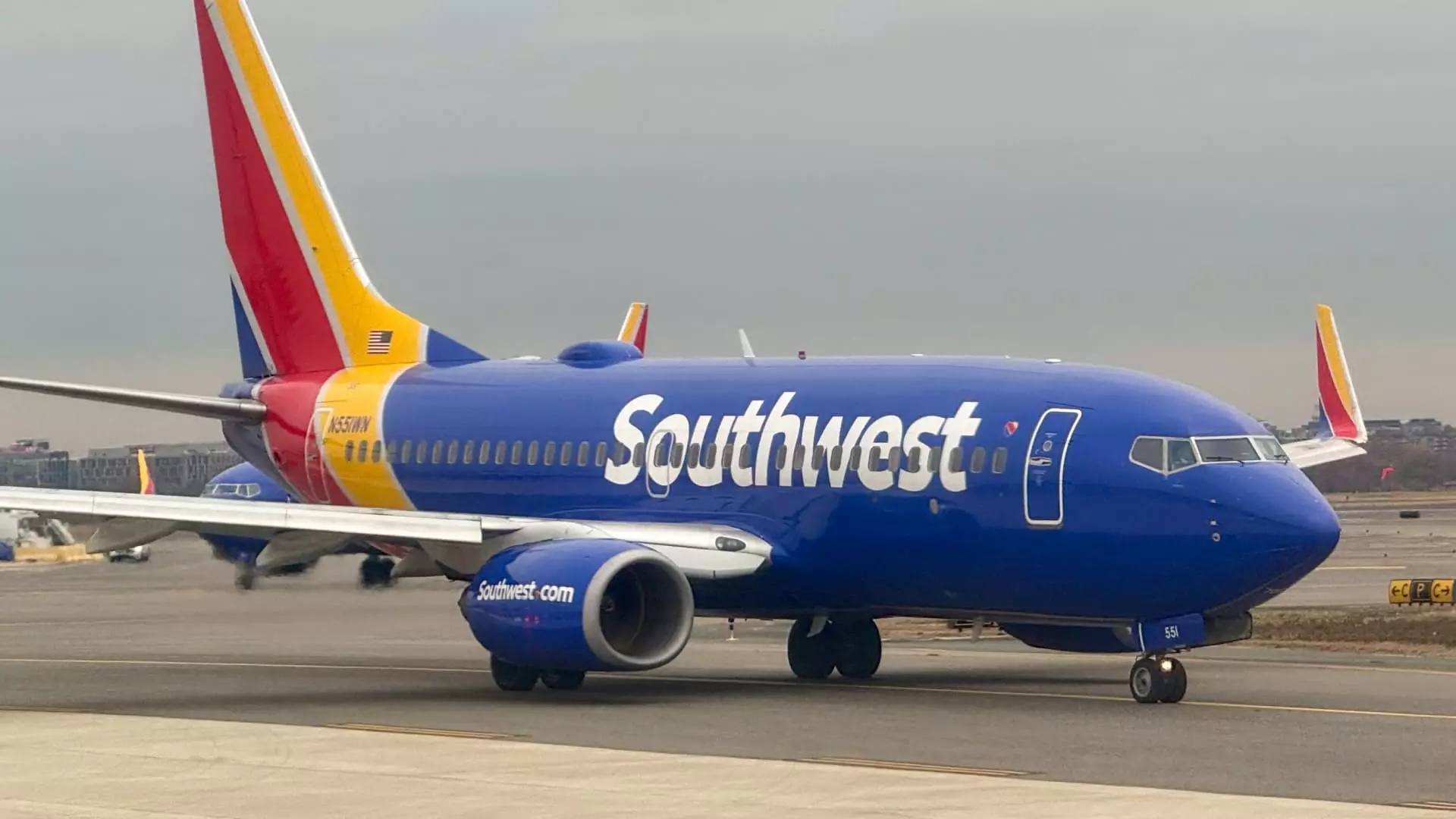In a bid to stabilize its fiscal performance, Southwest Airlines has announced significant cutbacks, including a halt on corporate hiring and promotions. CEO Bob Jordan conveyed this shift in strategy to employees, emphasizing that “Every single dollar matters” as the airline strives to enhance its financial standing. The company’s proactive stance signals a critical period in its operational strategy, as it navigates the complex landscape of post-pandemic recovery and competitive market pressures.
The decision to suspend most summer internships further underscores a cautious approach to workforce expansion. Rather than committing to long-term staffing, Southwest plans to reassess hiring needs on an ongoing basis, which could leave future job seekers in a state of uncertainty about employment opportunities within the airline.
Historical traditions, such as the employee “rallies” dating back to 1985, have also fallen victim to these cost-cutting measures. These rallies historically served as a platform for communication between leadership and team members, celebrating achievements and outlining future goals. By putting these initiatives on hold, Southwest is signaling that even established cultural practices must be re-evaluated to align with current financial realities. It raises questions about the long-term implications for employee morale and company culture when such cherished events are sidelined.
The airline’s cautious approach comes on the heels of intense pressure from activist investors, including Elliott Investment Management. Last year’s negotiations culminated in the acquisition of five board seats by Elliott, triggering a wave of scrutiny over operational efficiency and a push for reform. The leadership team, while remaining intact, faces scrutiny as they attempt to navigate these turbulent waters toward a more profitable horizon.
Looking ahead, Bob Jordan acknowledges that the urgency to improve margins must not diminish in 2025. The CEO’s insight reflects a deeper understanding of the industry’s volatility, where complacency could lead to setbacks. Southwest has already initiated various strategic adaptations, such as replacing its long-standing open seating policy with assigned seating and exploring additional revenue streams, such as extra legroom areas on flights. These significant changes illustrate an effort to refine the customer experience while also optimizing financial returns.
Moreover, recent reductions in flight operations from key hubs like Atlanta signify Southwest’s recognition of unprofitable routes and its commitment to reevaluating operational efficiency. While this may result in immediate job losses, it allows the airline to redirect resources toward more lucrative avenues.
As Southwest gears up to report its fourth-quarter results, the airline’s stock performance remains a focal point. The 14% increase in share value over the past year reflects a cautious optimism among investors. However, relative to competitors like United Airlines, which boasts a 160% increase in shares, Southwests’ performance draughts concerns about its ongoing market adaptability.
Ultimately, the ongoing efforts to recalibrate operations and enhance profitability will be vital in determining if Southwest Airlines can reclaim its position among the industry leaders. As the airline implements these extensive internal changes, stakeholders will be closely monitoring its progress toward achieving sustainable financial success.

